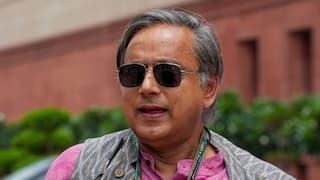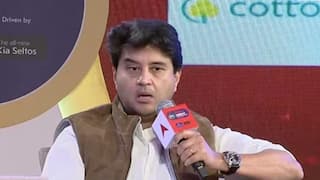AMU Verdict: Minorities Don't Require 'Safe Haven' For Education, Justice Sharma Says In Dissenting View
AMU Verdict: Justice Satish Chandra Sharma said that it is incorrect to assume that minorities in India need a safe haven for education. The judge also said that minorities have joined the mainstream.

New Delhi, Nov 8 (PTI) Supreme Court's Justice Satish Chandra Sharma on Friday said it was "wholly incorrect" to assume that minorities in the country required some "safe haven" for education and knowledge.
Justice Sharma was part of a seven-judge Constitution bench, which by a 4:3 majority verdict, overruled the 1967 judgement that held the Aligarh Muslim University not to be a minority institution since it was created by a central law.
"To assume that the minorities of the country require some 'safe haven' for attaining education and knowledge is wholly incorrect," he said.
The judge further underlined that the minorities of the country had not only joined the mainstream but also were an important facet of it.
"The institutions of national character of the country always serve the interests of the minorities and are diverse centers of learning," Justice Sharma said.
The majority verdict, authored by the CJI D Y Chandrachud, said the contentious legal question of AMU's minority status would now be adjudicated by a regular bench.
In a 193-page separate opinion, Justice Sharma said the "establishment" of an institution by the minority was necessary for it to claim the right of administration under Article 30 of the Constitution.
Article 30 deals with the right of minorities to establish and administer educational institutions.
Justice Sharma said the words "establish" and "administer" were used conjunctively in Article 30.
The majority verdict held as valid the 1981 reference by a two-judge bench questioning the correctness of the 1967 judgement by a five-judge Constitution bench in the S Azeez Basha v. Union of India and referring it to a seven-judge bench.
In his verdict, Justice Sharma said the two-judge bench could not have referred the matter to a bench of seven judges directly without the CJI being on the bench.
He said the notion that Azeez Basha verdict categorically prohibited minorities from establishing universities due to statutory requirements was "unfounded".
Justice Sharma said the 1967 judgment hadn't precluded minorities from establishing universities but highlighted the importance of the legislative intent and statutory provisions in determining an institution's character.
"The minority community may conceptualise the idea of an institution and may advocate for the same, however, if during an exchange or negotiation, the actual institution which was established had primacy of governmental efforts and control, then such institution cannot be held to be predominantly established by the efforts and actions of the minority community," he said.
Justice Sharma said the term "establish" in Article 30 meant "to bring into existence or to create" and couldn't be conflated with generic phrases such as "genesis of the institution" or the "founding moment of the institution".
He said the purpose of Article 30 was not to create "minority only" ghettos but provide positive rights to the minorities to establish educational institutions of their choice and kind.
"Article 30, as a feature of the Constitution, provides important rights which function within the larger penumbra of fundamental rights. There is substantial interplay, intermixing and balancing of rights inter se within the fundamental rights and Article 30 is not absolute and certainly do not exist in a silo," noted Justice Sharma.
The crux of Article 30(1) was in its mandate to ensure parity between non-minority (or "neutral") institutions and minority ones, he said.
"Its fundamental aim is to prevent any form of discrimination or preferential treatment to non-minority communities, thereby advocating for equal treatment under the law for one and all," wrote Justice Sharma.
He said the provision underscored no specific category or type of institution should be disadvantaged or unduly favoured over another within the legal framework.
"The assertion that 'neutral' institutions or non-minority institutions would in the natural course of things be 'majoritarian' or that Article 30 contemplates constitutionally protecting certain educational spaces from such 'majoritarianism-by-default' tendencies, is wholly erroneous," he held.
(This report has been published as part of the auto-generated syndicate wire feed. Apart from the headline, no editing has been done in the copy by ABP Live.)
Education Loan Information:
Calculate Education Loan EMI






































